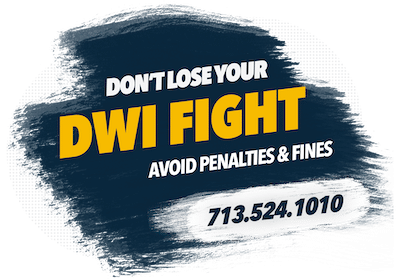Why should you get an expunction?
Just because your case was dismissed doesn’t mean that the record of your case is gone.
If you have a professional career—whether you’re a healthcare professional—the stakes are high if you have a blemish on your record.
If you drive a vehicle professionally or your company or a company you’re thinking about joining perform background checks—an expunction makes sense.
If you’re a pilot, you could lose your license or denied one if you have a DWI on your record.
Although don’t have criminal charges pending against you, your criminal case can follow you around for the rest of your life.
It can linger on your record just waiting to affect you when you least expect it:
· Applying for a new job
· Helping at your child’s school where a background check is required
· Professional licensing board application or renewal
· Applying for housing
· You get arrested for DWI again and your previous case is used against you to make your punishment more severe
How to know if your case is eligible for an expunction
Here are the circumstances that may help you understand if your case is eligible for expunction:
1. You were arrested but never charged for a crime.
2. You were charged with a criminal crime, but it was ultimately dismissed.
3. You were charged with a certain qualifying misdemeanor juvenile offense that is if a “child” is convicted of only one charge punishable by fine only or a violation of a penal ordinance of a political subdivision or only one charge of Electronic transmission of visual material under 43.261 (see. CCP 45.0216 below)
4. You are a minor convicted of only one charge of a crime detailed in Ch. 106 such as Possession of Alcohol by a minor, Purchase of alcohol be a minor, Driving a motor vehicle with any detectable amount of alcohol. (See Alcoholic Beverage Code Ch. 106. Sec. 106.12).
5. You were convicted for failure to attend a public school.
6. You have an arrest, charge or conviction record because someone stole your identity and they were actually arrested, charged or convicted of a crime under your identity.
7. You were convicted of a crime that was later acquitted by the trial court or the Criminal Court of Appeals.
8. You were convicted of a crime that was later pardoned by the Governor of Texas or the US President.
Your case is eligible for expunction, but it may not qualify
Just because your case may be eligible, doesn’t mean it qualifies for expunction.
The court will not grant your expunction if you’ve been placed on felony probation, deferred adjudication or convicted of a felony within 5 years after the arrest for the eligible case.
Additionally, eligible cases don’t qualify until the statute of limitations has expired.
The statute of limitations is the period of time after a crime was committed in which the state or county can legally prosecute.
The statute of limitations is different depending on the crime.
How to get your case expunged
As with any complex legal issue, you should call an experienced Houston DWI attorney to ensure that your case is eligible for an expunction and that it’s handled effectively.
The only thing worse then not filing an expunction to clear your record is filing an expunction ineffectively.
You don’t want to think that your record is clear, then later realize that someone like an employer, or law enforcement official can still view your criminal record.
By then, it’s too late.
How does the expunction process work?
The courts can be complicated and confusing, so filing your petition for an expunction correctly can be daunting.
At Trichter and LeGrand, we file expunction petitions every day.
We understand how an effective petition should be structured and what it should say and how it should be written.
We know what documents need to be filed on your behalf and how to frame the proper information so that it places you in the best possible light.
We check and recheck our documents to avoid errors and make sure they are thorough and truthful.
We know the process and, if you meet all of the requirements, we hope to receive an Order of Expunction.
If that happens, the signed Order is sent to each of the named agencies requiring them to destroy any and all records detailed in the Petition.
Congratulations, your record is clear.


